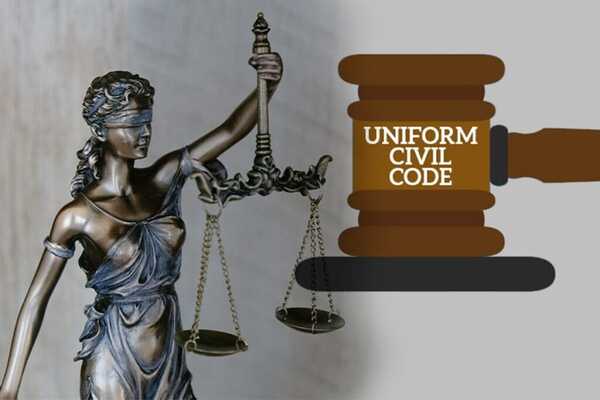Why Is Everyone Talking About the Uniform Civil Code?

If you’ve been following the news or even just your social media feed lately, chances are you’ve come across the term Uniform Civil Code (UCC). But why is it such a hot topic right now? And why should you, as a student of law or even just a curious citizen care about it?
Let’s break it down.
India is a diverse country with multiple personal laws that govern marriage, divorce, inheritance, and adoption based on religion. So, a Hindu, a Muslim, Parsi and a Christian is governed by different laws even if they live in the same city and are citizens of the same country.
The idea behind the UCC is simple, let’s have one set of civil laws for all Indians, regardless of religion, gender, or caste. Sounds fair, right? That’s what the framers of our Constitution thought too, they even included it as a Directive Principle in Article 44 of the Indian Constitution.
So, why is it controversial?
Supporters argue that the UCC promotes equality and justice, especially for women who often face discrimination under personal laws. Critics worry it might threaten cultural identity and religious freedom. The debate is not just legal, it's emotional, political, and deeply personal.
But here’s why you, as a student at Presidency University—especially those studying at the Presidency School of Law—should care: the UCC debate isn’t just about law. It’s about what kind of India we want to build. A place where equality and unity go hand in hand, or a place where tradition always outweighs change.
As future lawyers, thinkers, and citizens, we must ask ourselves tough questions: Can law be both respectful of diversity and committed to equality? Can tradition evolve without losing its essence?
The UCC debate challenges us to think critically, speak responsibly, and dream boldly about the future of justice in India.
Written by,
Dr. Alisha Pradhan, Assistant Professor, PSOL













 Rajanukunte, Yelahanka, Bengaluru, Karnataka, Pin: 560119, India
Rajanukunte, Yelahanka, Bengaluru, Karnataka, Pin: 560119, India
 +91 9022092222
+91 9022092222